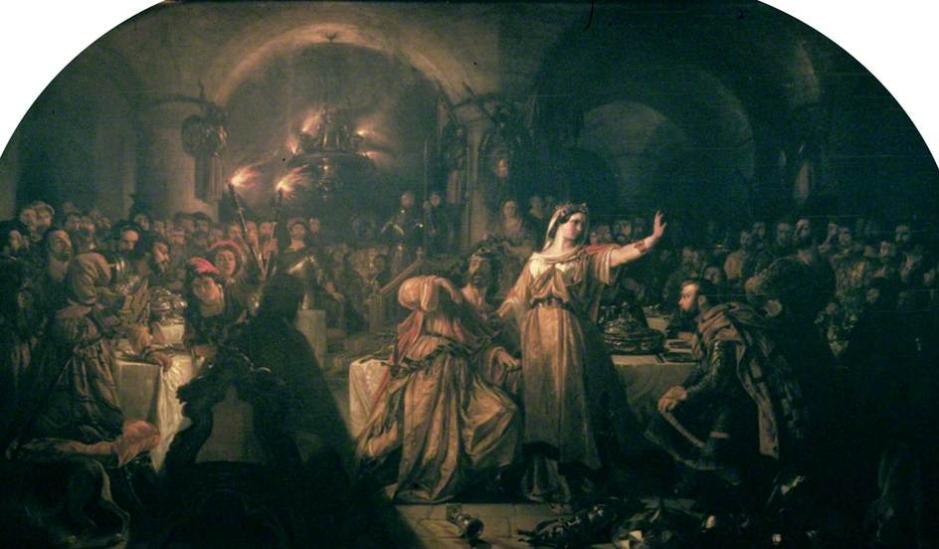How Does Shakespeare Portray the Theme of Power in Macbeth?
William Shakespeare's Macbeth is a timeless tragedy that delves into the complex and often destructive nature of power. Set in 11th-century Scotland, the play follows the rise and fall of Macbeth, a noble warrior who becomes consumed by his ambition for power. Through Macbeth's tragic journey, Shakespeare explores the corrupting influence of power, the consequences of unchecked ambition, and the importance of moral integrity.

Macbeth's Thirst For Power
- Initial Ambition: Macbeth is initially a loyal and honorable soldier, but his ambition is ignited by the witches' prophecies that he will become king.
- Moral Corruption: Macbeth's desire for power corrupts his moral compass, leading him to commit heinous acts, including murder and betrayal.
- Lady Macbeth's Influence: Lady Macbeth plays a significant role in fueling Macbeth's ambition. Her own lust for power and ruthless nature push Macbeth to take drastic measures.
The Corrupting Influence Of Power
- Ruthless Tyrant: Macbeth's pursuit of power transforms him into a ruthless tyrant. He becomes paranoid, suspicious, and willing to eliminate anyone who poses a threat to his throne.
- Descent into Madness: Macbeth's guilt and fear over his crimes lead him to descend into madness. He experiences hallucinations, sleepwalking, and a loss of touch with reality.
- Consequences of Macbeth's Actions: Macbeth's actions have devastating consequences. He loses his sanity, destroys his relationships, and eventually leads to the downfall of his kingdom.
The Symbolism Of Power
- The Witches: The witches represent the supernatural forces that tempt Macbeth with power. Their prophecies set in motion the chain of events that lead to his downfall.
- The Dagger: The dagger that Macbeth sees before killing Duncan symbolizes his moral struggle and the consequences of his actions.
- The Crown: The crown represents the ultimate symbol of power that Macbeth desires. It becomes an obsession that drives him to commit heinous acts.
- The Setting: The dark and chaotic atmosphere of the play reflects the turmoil caused by Macbeth's pursuit of power.
The Restoration Of Order
- Macduff and Malcolm: Macduff and Malcolm represent the forces of good that ultimately defeat Macbeth and restore order to the kingdom.
- Triumph of Good over Evil: The defeat of Macbeth signifies the triumph of good over evil and the reestablishment of justice.
- Final Scene: The play ends with Malcolm being crowned king and peace being restored to the kingdom, symbolizing the restoration of order and the end of Macbeth's reign of terror.
Shakespeare's Macbeth is a powerful exploration of the theme of power and its corrupting influence. Through Macbeth's tragic journey, Shakespeare delves into the dangers of unchecked ambition, the importance of moral integrity, and the consequences of succumbing to the allure of power. The play's enduring relevance lies in its timeless insights into the human psyche and the destructive nature of power when it falls into the wrong hands.
YesNo

Leave a Reply